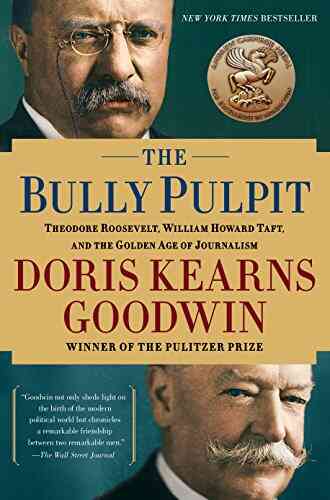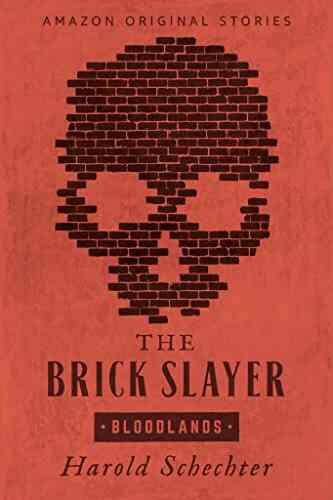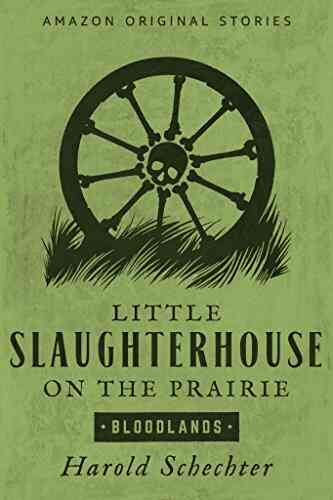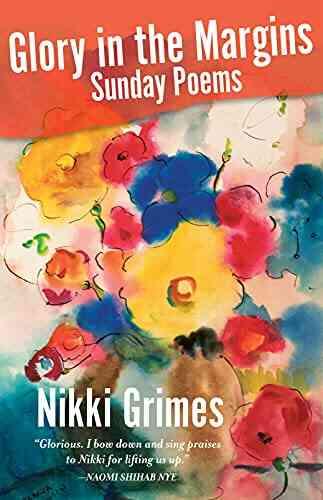Theodore Roosevelt, William Howard Taft, and the Golden Age of Journalism

The relationship between Theodore Roosevelt and William Howard Taft, two prominent figures in American history, is a tale of friendship, rivalry, and the impact they had on the golden age of journalism. These two men not only left a significant mark on American politics but also played a crucial role in shaping the media landscape during one of the most transformative periods in history.
Entering the Political Arena
Theodore Roosevelt, a charismatic and adventurous man, first served as the 26th President of the United States from 1901 to 1909. His progressive policies, conservation efforts, and trust-busting initiatives made him a popular figure among the American people. However, his term ended, and Roosevelt decided not to run for re-election in 1908.
Enter William Howard Taft, Roosevelt's close friend and fellow Republican. Taft, known for his legal expertise and dedication to public service, succeeded Roosevelt as the 27th President in 1909.
4.6 out of 5
| Language | : | English |
| File size | : | 61861 KB |
| Text-to-Speech | : | Enabled |
| Screen Reader | : | Supported |
| Enhanced typesetting | : | Enabled |
| X-Ray | : | Enabled |
| Word Wise | : | Enabled |
| Print length | : | 929 pages |
The Progressive Movement
Theodore Roosevelt's presidency marked the beginning of the Progressive Era, a period characterized by reform and social activism. Both Roosevelt and Taft were strong advocates for progressive policies, which aimed to combat corruption, protect workers' rights, and promote social justice.
Roosevelt, during his time in office, pushed for increased government regulation over big business, aiming to break up monopolies and ensure fair competition. Taft, as his successor, continued these efforts but faced challenges as the public perception of his presidency shifted.
Their Relationship on and off the Political Stage
Theodore Roosevelt and William Howard Taft had a close friendship that began during their time at Yale University. Roosevelt, the more outgoing and boisterous of the two, supported Taft throughout his political career. They frequently corresponded, shared advice, and collaborated on policy matters.
However, as political dynamics evolved, their friendship was tested. Roosevelt became increasingly critical of Taft's presidency, viewing his policies as deviating from pure progressivism. Taft, on the other hand, believed he was merely building upon Roosevelt's achievements while also staying true to his own principles.
The Split and the Election of 1912
The tensions between Roosevelt and Taft reached a breaking point, leading to a dramatic split in the Republican Party. Frustrated with Taft's presidency, Roosevelt decided to challenge him for the Republican nomination in the 1912 presidential election.
Roosevelt's decision to run as an independent candidate under the newly formed Progressive Party, also known as the Bull Moose Party, divided the Republican base. The election ultimately resulted in Democrat Woodrow Wilson's victory, as the Republicans' vote was split between Taft and Roosevelt.
Media Influence and the Golden Age of Journalism
Theodore Roosevelt and William Howard Taft, unknowingly, played a significant role in shaping the golden age of journalism during their time. The rise of newspapers and magazines as mass media platforms provided a means for journalists to directly influence public opinion.
Roosevelt, a media-savvy president, leveraged the power of the press to communicate his policies and maintain a strong rapport with the American people. He utilized his eloquence, charm, and wit to captivate audiences, making him a favorite subject for newspapers and magazines alike.
Taft, although less comfortable in the public eye, also recognized the media's importance and initiated regular press conferences in the White House. This accessibility allowed journalists to report on his presidency and ensure the public remained informed.
However, it wasn't just their actions but also the changing nature of journalism that contributed to this golden age. Muckrakers, investigative journalists of the time, exposed societal issues and government corruption through in-depth reporting. Their groundbreaking articles paved the way for a more transparent and accountable government.
A Lasting Legacy
Theodore Roosevelt's legacy extends beyond his political achievements. He left an indelible mark on American journalism, pioneering the use of media to connect with citizens. His actions laid the foundation for future presidents to utilize the power of the press effectively.
William Howard Taft, though often overshadowed by Roosevelt's larger-than-life persona, had a lasting impact on the judiciary. After leaving the presidency, Taft became the Chief Justice of the United States, where he played a crucial role in shaping constitutional law.
Theodore Roosevelt, William Howard Taft, and the golden age of journalism will forever be intertwined. Their contributions to politics and media continue to influence the world we live in today. Through their friendship, rivalry, and unwavering dedication, they shaped an era that transformed both American society and the field of journalism.
4.6 out of 5
| Language | : | English |
| File size | : | 61861 KB |
| Text-to-Speech | : | Enabled |
| Screen Reader | : | Supported |
| Enhanced typesetting | : | Enabled |
| X-Ray | : | Enabled |
| Word Wise | : | Enabled |
| Print length | : | 929 pages |
One of the Best Books of the Year as chosen by The New York Times, The Washington Post, The Economist, Time, USA TODAY, Christian Science Monitor, and more. “A tale so gripping that one questions the need for fiction when real life is so plump with drama and intrigue” (Associated Press).
Doris Kearns Goodwin’s The Bully Pulpit is a dynamic history of the first decade of the Progressive era, that tumultuous time when the nation was coming unseamed and reform was in the air.
The story is told through the intense friendship of Theodore Roosevelt and William Howard Taft—a close relationship that strengthens both men before it ruptures in 1912, when they engage in a brutal fight for the presidential nomination that divides their wives, their children, and their closest friends, while crippling the progressive wing of the Republican Party, causing Democrat Woodrow Wilson to be elected, and changing the country’s history.
The Bully Pulpit is also the story of the muckraking press, which arouses the spirit of reform that helps Roosevelt push the government to shed its laissez-faire attitude toward robber barons, corrupt politicians, and corporate exploiters of our natural resources. The muckrakers are portrayed through the greatest group of journalists ever assembled at one magazine—Ida Tarbell, Ray Stannard Baker, Lincoln Steffens, and William Allen White—teamed under the mercurial genius of publisher S.S. McClure.
Goodwin’s narrative is founded upon a wealth of primary materials. The correspondence of more than four hundred letters between Roosevelt and Taft begins in their early thirties and ends only months before Roosevelt’s death. Edith Roosevelt and Nellie Taft kept diaries. The muckrakers wrote hundreds of letters to one another, kept journals, and wrote their memoirs. The letters of Captain Archie Butt, who served as a personal aide to both Roosevelt and Taft, provide an intimate view of both men.
The Bully Pulpit, like Goodwin’s brilliant chronicles of the Civil War and World War II, exquisitely demonstrates her distinctive ability to combine scholarly rigor with accessibility. It is a major work of history—an examination of leadership in a rare moment of activism and reform that brought the country closer to its founding ideals.
Do you want to contribute by writing guest posts on this blog?
Please contact us and send us a resume of previous articles that you have written.




















Light bulbAdvertise smarter! Our strategic ad space ensures maximum exposure. Reserve your spot today!
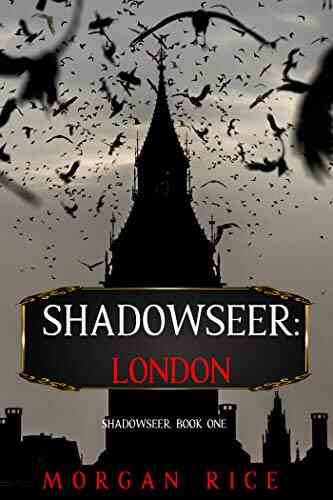
 Colin RichardsonShadowseer London Shadowseer One - A Mesmerizing Event | The Ultimate Guide
Colin RichardsonShadowseer London Shadowseer One - A Mesmerizing Event | The Ultimate Guide
 Darrell Powell"Help Helen Smash" Creator Shares Inspirational Life Stories We All Need to...
Darrell Powell"Help Helen Smash" Creator Shares Inspirational Life Stories We All Need to...
 William GoldingDiscover the Incredible Powers of Zeke Firegon Xanku - Master Chapter Son Of...
William GoldingDiscover the Incredible Powers of Zeke Firegon Xanku - Master Chapter Son Of... Ivan TurgenevFollow ·9.8k
Ivan TurgenevFollow ·9.8k Braeden HayesFollow ·14k
Braeden HayesFollow ·14k Alexander BlairFollow ·8.7k
Alexander BlairFollow ·8.7k Jett PowellFollow ·7.7k
Jett PowellFollow ·7.7k Daniel KnightFollow ·15.5k
Daniel KnightFollow ·15.5k Jaime MitchellFollow ·15.7k
Jaime MitchellFollow ·15.7k Dale MitchellFollow ·7.8k
Dale MitchellFollow ·7.8k John Dos PassosFollow ·16.3k
John Dos PassosFollow ·16.3k

 Dashawn Hayes
Dashawn HayesUnveiling the Intriguing World of Stephanie Plum, Kate...
Chapter 1: Stephanie Plum – An...
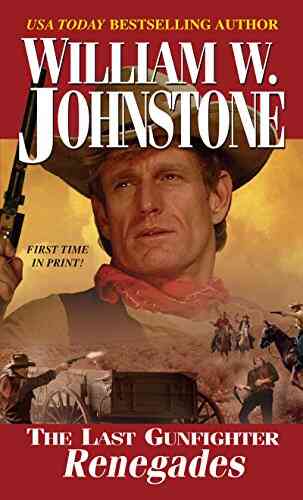
 Colin Richardson
Colin RichardsonRenegades: The Last Gunfighter 12 - A Heart-Pounding...
Get ready for an action-packed ride as we...

 Emmett Mitchell
Emmett MitchellThe Rainbow Beyond Tears - A Journey of Healing
Have you ever wondered what lies...
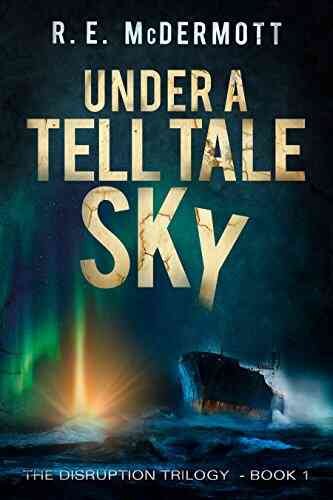
 Bret Mitchell
Bret MitchellUnveiling the Secrets Beneath the Tell Tale Sky: A...
Have you ever looked up at the sky and...
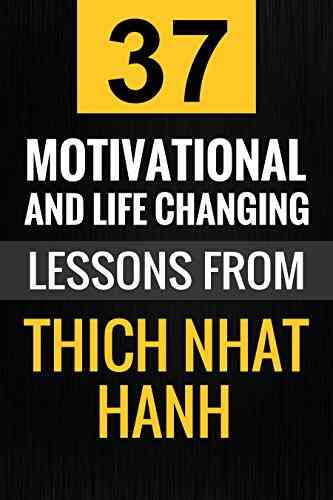
 Corey Hayes
Corey Hayes37 Motivational And Life Changing Lessons From Thich Nhat...
Thich Nhat Hanh is a renowned Zen master,...
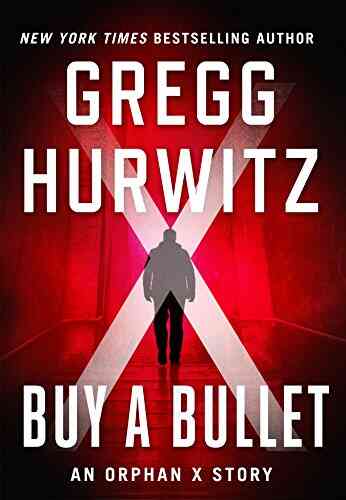
 Jace Mitchell
Jace MitchellBuy Bullet: An Orphan Short Story
Are you ready to embark on a gripping...
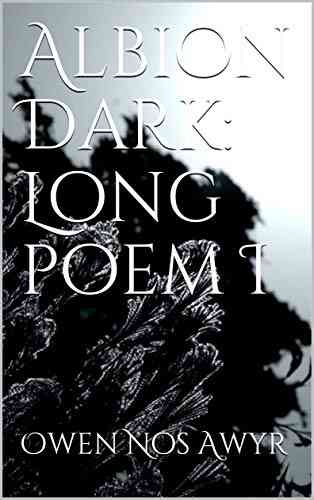
 Branson Carter
Branson CarterAlbion Dark Long Poem: An Enchanting Journey into the...
Are you ready to immerse yourself in...
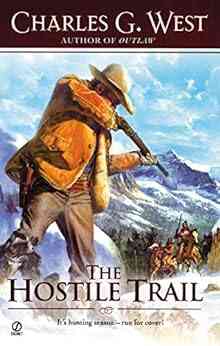
 Jorge Amado
Jorge AmadoThe Hostile Trail Matt Slaughter: A Captivating Journey...
Are you ready to embark on a thrilling...

 Luke Blair
Luke BlairThe Adorable Grandma Peek Boo Crochet Pattern 131: Create...
Have you been searching for the perfect...
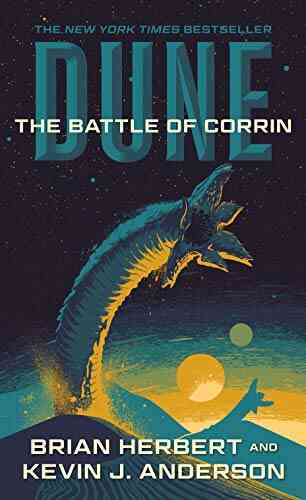
 Bret Mitchell
Bret MitchellThe Battle of Corrin: A Turning Point in the Known...
When it comes to pivotal moments in...

 Andres Carter
Andres CarterLittle Gnome Home Crochet Pattern - Create Your Own...
Imagine a world where whimsical creatures...

 Bradley Dixon
Bradley DixonTerraforming The Atmosphere Of Venus: A Journey Towards...
Are you ready to embark on a journey that...
4.6 out of 5
| Language | : | English |
| File size | : | 61861 KB |
| Text-to-Speech | : | Enabled |
| Screen Reader | : | Supported |
| Enhanced typesetting | : | Enabled |
| X-Ray | : | Enabled |
| Word Wise | : | Enabled |
| Print length | : | 929 pages |


